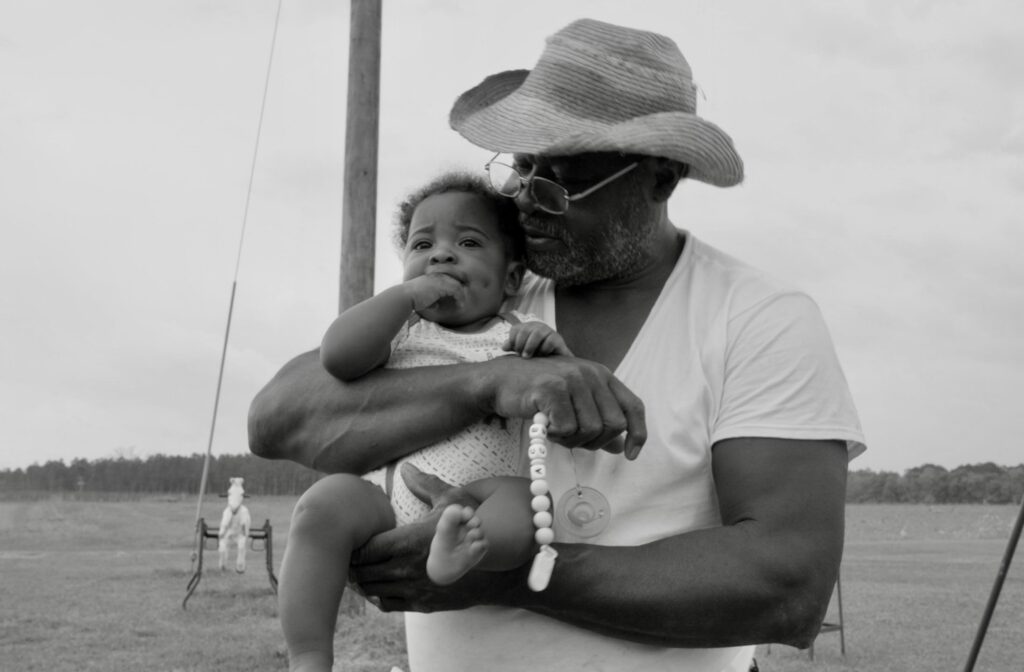
(***)
Passing down generational and cultural wealth is the subject of this touching documentary about agrarian life. A chronicle that invites you into the homes and onto the fields of stalwart Black farmers.
Nine years of recording in the deep American south has been sifted into 2h 3m of slow-moving, cinema verité style footage. Cinematographer (Factory) turned documentary filmmaker Brittany Shyne follows folks in the region who’re cognizant of challenges and proud of their accomplishments. It’s an immersive experience. Viewers can almost feel the dirt under their nails, sweat on their brows and that sense of accomplishment from a day’s hard work.
All on screen are working and preserving their land. That journey hasn’t been easy. From the government funding white farmers at a faster rate with a disproportional share, to the perils of living long lives. Like bad health, aging and death. There’s something so authentic about the film’s participants and their lifecycles. Watching them discuss money issues, nature’s fickle timing, who died and who is born seem so involving and natural. You’re impressed by their noble profession. Grateful they’re sharing their lives.
There’s a slow-beat rhythm. A daze. It’s like you’re meandering down a country road. To enhance that feel, editor Malika Zouhali-Worrall is far more intent on letting folks speak their mind than cutting off anecdotes. A trip to the store. A drive down to a neighbor’s house. Getting the gossip on who did what to who. It’s all as natural as rain as Robert Aiki Aubrey Lowe’s musical score languishes over the proceedings.
A mood is planted, slow growing, earnest and sprinkled with occasional laughter when families gather. No strong up and down emotions. A steady flow. The biggest skirmishes come when the farmers fight for equal rights, access and profits. Never do you get the feeling that their battles are just about themselves. More for those who will come behind. At least that’s true for the Williams family. Clara is the matriarch on a farm that started back in the late 1880s. Carlie is the 80ish patriarch. Down the road, Will Heads Jr. raises corn on his property. Cotton is grown around those parts, too. Whatever the earth yields, is tended, harvested and sold.
Audiences are more likely to get caught up in the atmospheric black and white footage in a theater. The pacing and lack of color may test some viewers’ attention spans at home on a small screen. A smart screenwriter would turn premise, storylines, geography and lifestyle into a feature film. The elements are all in place for a modern Mudbound.
Black farmers needed a guardian angel. Providence sent Brittany Shyne and her prying camera. It’s all archived now. Their struggles, joys and sense of destiny for them and those who follow have been duly catalogued. Like a diary. Like a family album. Like a history book that should be read.
Photos courtesy of the Sundance Film Institute. Photo by Brittany Shyne.
For more information about the Sundance Film Festival go to: https://festival.sundance.org
Visit Film Critic Dwight Brown at DwightBrownInk.com.